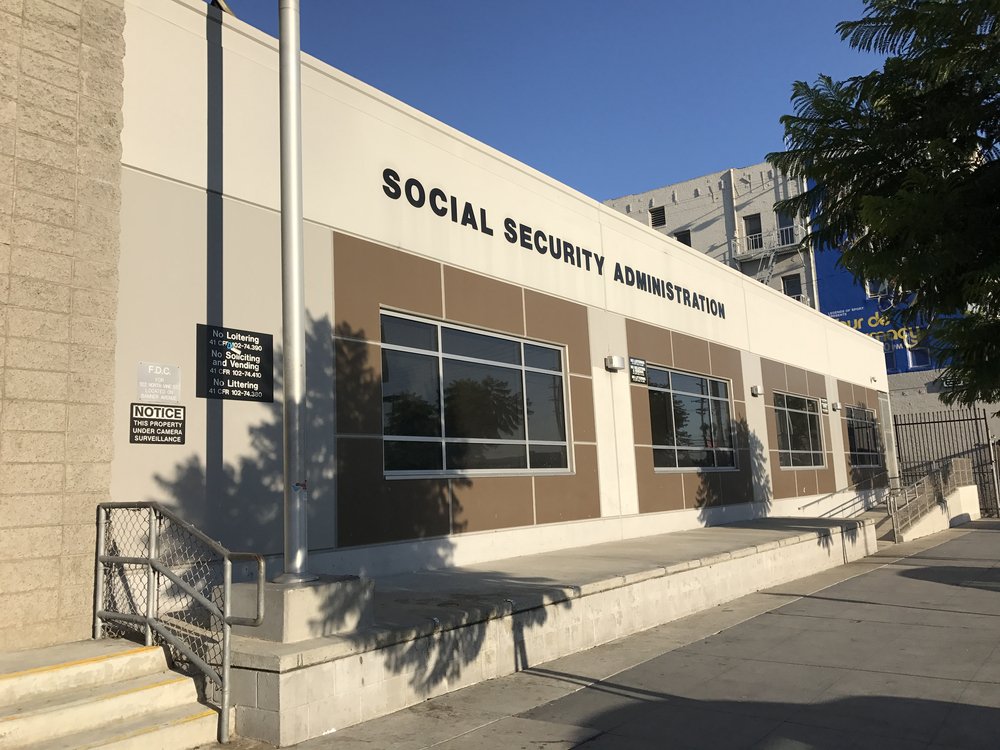Social Security Shutters ‘Petri Dish’ Offices in Response to Coronavirus Outbreak
To protect its workers and the public during the coronavirus pandemic, the Social Security Administration (SSA) has suspended face-to-face service to at its field offices and hearings offices nationwide until further notice. Payments to the nearly 70 million Social Security beneficiaries will not be affected.
Posted on March 27, 2020

While in-person appointments will still be made for certain critical services (see below), the SSA is encouraging beneficiaries to transact as much business as possible online using the agency’s website. (If you don’t have an online account yet, click here.)
Certain services also will continue to be available via the agency’s toll-free line, (800) 772-1213 or from local offices’ General Inquiry lines. (For the local office locator, click here.)
Why the Closure?
Budget cuts to Social Security over the years have led to crowded offices and long wait times. With the advent of the coronavirus outbreak, this went from being an inconvenience to a public health threat. The union representing the SSA’s 61,000 workers was deeply concerned about the health of the agency’s workforce as well as the danger to the public.
“The offices are petri dishes,” Richard Couture, a spokesman for the union, told The New York Times. “People are sitting there for a long time, magnifying and multiplying the risk of infection for everyone there, and to people on the outside.”
How to Get in Touch During the Shutdown
Examples of tasks or inquiries that can be accomplished online include:
- Applying for retirement, disability, and Medicare benefits;
- Checking the status of an application or appeal;
- Requesting a replacement Social Security card (in most areas); or
- Requesting a replacement Medicare card.
(For a complete list, click here.)
Phone services will also be available, although the SSA says it is “focusing on providing specific critical services to people in dire need.” Examples of how the SSA can help by phone include:
- If you did not receive your monthly payment;
- If you are currently homeless or at risk of becoming homeless; or
- If your benefits were suspended and can now be reinstated.
Expect long wait times if calling, however.
In-Person Appointments
In-person help will still be available for a limited list of critical services, including:
- Reinstatement of benefits in dire circumstances;
- Assistance to people with severe disabilities, blindness or terminal illnesses; or
- Help for those in urgent need of eligibility decisions for Supplemental Security Income or Medicaid eligibility related to work status.
If you require such services, you must call in advance; there are no walk-ins at the field offices.
What if you already had a standing appointment or disability hearing scheduled? If this is the case, the SSA will call you to reschedule or to take care of the issue by phone. Unfortunately, this call may come from a private phone number rather than from a government phone because employees are working remotely and do not necessarily have government-issued phones. Identity theft phone scams where callers impersonate SSA workers were already on the rise, and this will likely only add to beneficiaries' confusion. Be aware that agency employees will never inform you that your Social Security number has been suspended, demand payment, or seek credit card information.
For full details on changes to SSA services brought on by the response to the coronavirus, go to the SSA’s Social Security & Coronavirus page, https://www.ssa.gov/coronavirus/
More from our blog…
What You Should Know About Long-Term Care
Research shows that roughly one in seven adults aged 65 or older will need long-term care at some point in their later years. Meanwhile, tens of millions [...]
Understanding Medicaid: What Does Medicaid Cover?
In the complex and frequently changing landscape of health care in the United States, Medicaid stands out as a vital program. Since 1965, it has [...]
Elder Financial Abuse: How an Elder Law Attorney Can Help
Elder financial abuse is a significant issue affecting many older adults nationwide. It involves someone exploiting or misusing an older person’s finances or assets for [...]
Does Medicare Cover Prescription Weight Loss Drugs?
Americans have a growing appetite for prescription drugs such as Ozempic, Wegovy, and Mounjaro. Originally developed to treat Type 2 diabetes, they are now exploding [...]
Recent blog posts

FREE WEBINAR
5 Things to Know About
Estate Planning
When You Turn Sixty-Five





